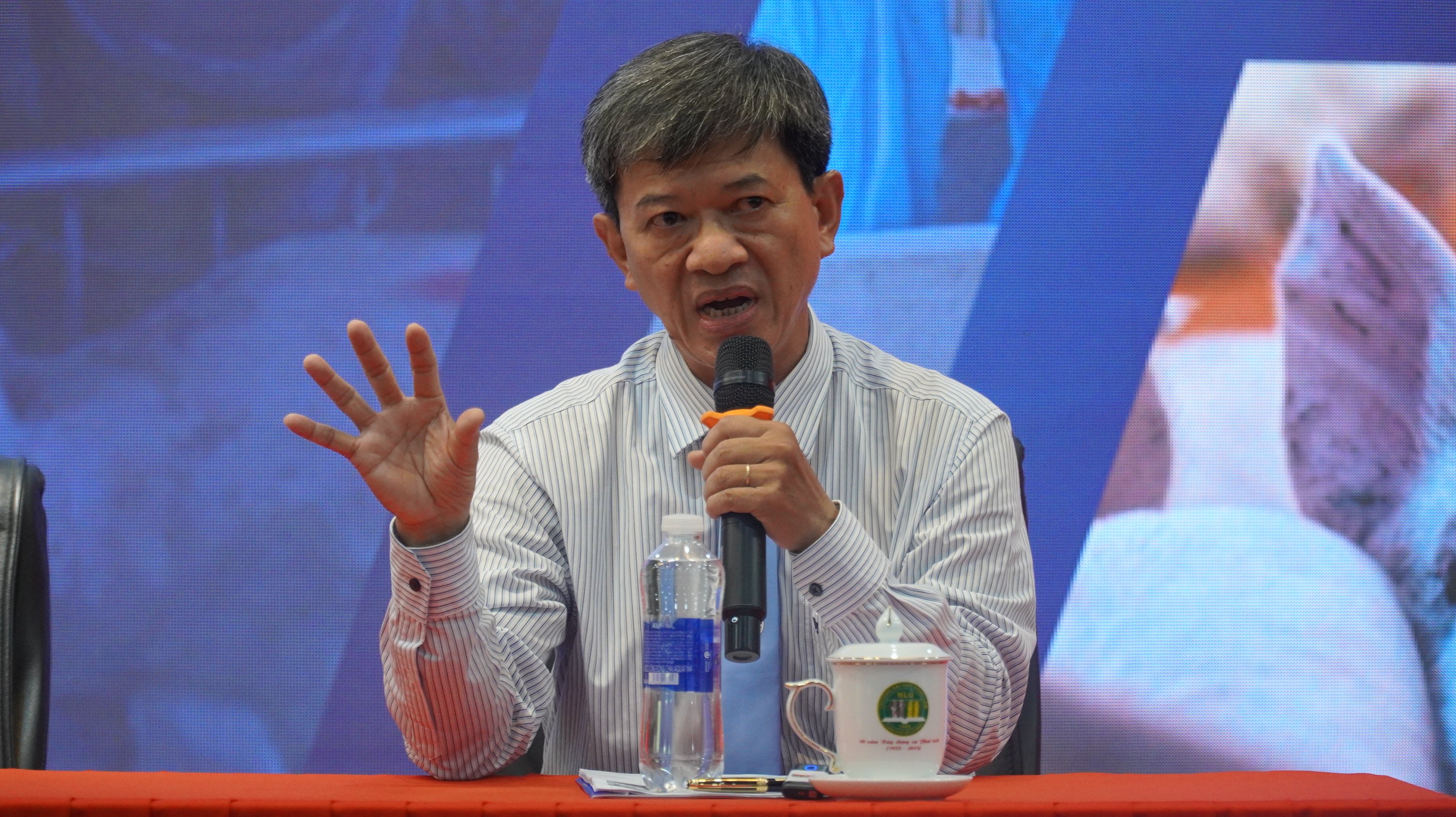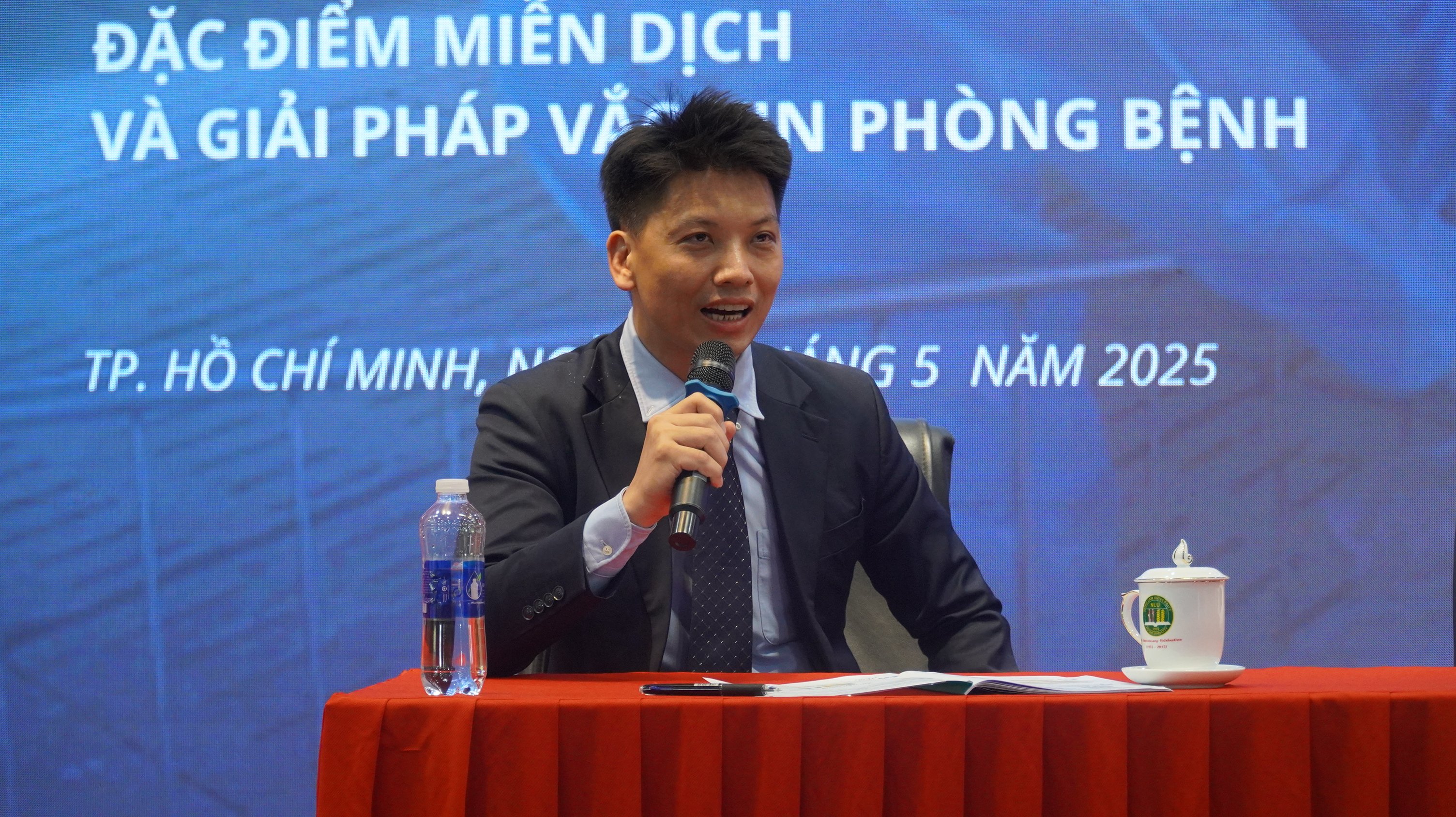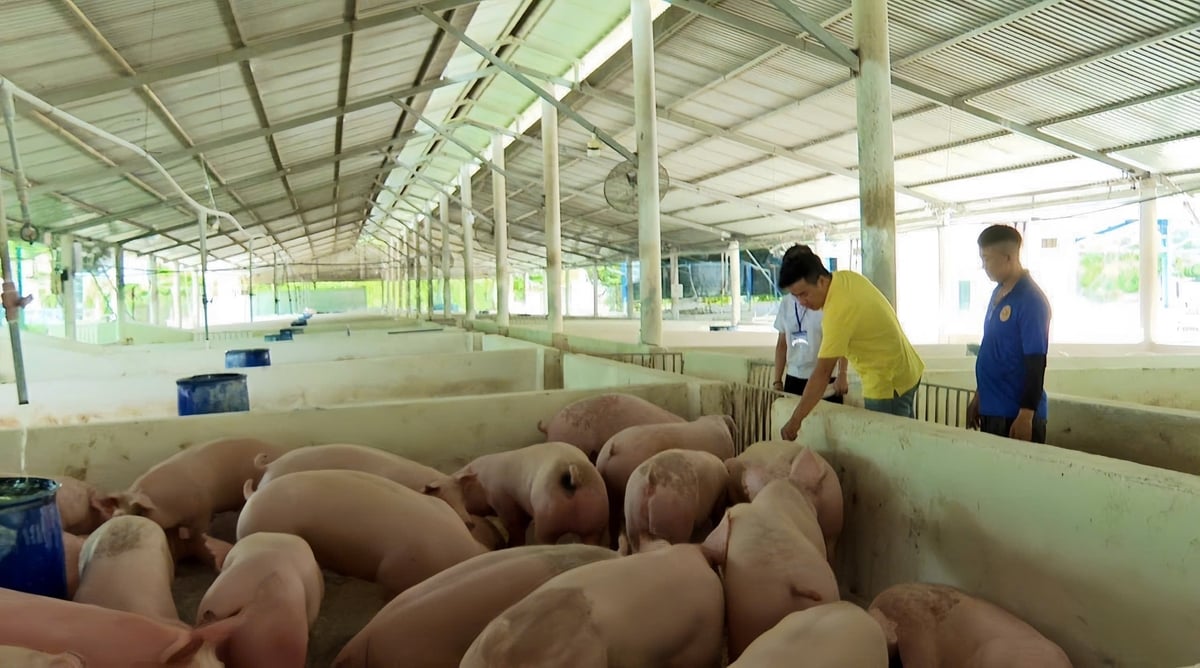December 23, 2025 | 16:21 GMT +7
December 23, 2025 | 16:21 GMT +7
Hotline: 0913.378.918
December 23, 2025 | 16:21 GMT +7
Hotline: 0913.378.918

Dr. Nguyen Ngoc Hai emphasized the need to build a digital immunity map to control animal disease proactively. Photo: Tran Phi.
As the African swine fever (ASF) vaccine has yet to become the final answer, experts have come to an agreement that it is crucial to build a "digital immunity map" to proactively control animal diseases based on scientific and technological data.
"To effectively prevent ASF, we cannot rely solely on vaccines. We must understand the immune system as a conditionally operating system. If we cannot control the environment, food sources, and vaccination schedules, no matter how good the vaccine is, the risk would remain high. The livestock industry needs an immune map based on real data. We cannot continue to blindly fight the epidemic with emotions," said Dr. Nguyen Ngoc Hai, a leading expert in veterinary immunology.
In reality, without regular immune surveillance, the livestock industry will always be in a passive position. The immune map would be a solid foundation to connect data between livestock farms, veterinary stations, researchers and vaccine developers. A comprehensive tool will be a great help in tracking vaccination history, analyzing immune responses, giving out warnings of risks and proposing timely interventions.
A map of this nature needs to be built based on periodic ELISA and PCR testing data, integrating AI and big data to forecast epidemic areas and plan appropriate vaccination according to the season, livestock breed characteristics and ecological environment of each region.
In particular, the development of the DIVA (Differentiating Infected from Vaccinated Animals) vaccine can help distinguish antibodies from vaccination and antibodies from natural infection, improving traceability and rapid response to the diseases.
"The solution does not lie in a single tool but in the whole system: from cold barn technology to help reduce pathogens and transit stations applying biosafety standards to digitizing livestock data and connecting veterinary facilities, managers, and researchers through a common platform. Only with consistent data can the industry proactively forecast, respond, and prevent epidemics," said Dr. Nguyen Van Diep, veterinary technology expert and technical advisor for biosafety livestock projects.
The automation of feeding, waste treatment, temperature and humidity measurements in barns, combined with movement tracing for each batch of livestock, not only helps increase productivity but also minimizes the risk of disease transmission. This collection of data, when connected to veterinary stations and management agencies, will become a strategic asset to help the industry respond quickly to epidemiological fluctuations.

Dr. Nguyen Van Diep proposed connecting data across farms, veterinarians and researchers for effective disease prevention. Photo: Tran Phi.
Data synchronization and connection
Another key point is education and communication. If farmers are not updated with basic immunology knowledge, do not understand the difference between inactivated vaccines, live attenuated vaccines and adjuvants, vaccination effectiveness will continue to stagnate. Communication through visual, digital tools such as mobile applications, online dashboards and automatic alert systems will shorten the gap between science and production reality.
The search for an immune map is not a theoretical concept but a practical and urgent need in the context of constantly changing epidemics, limited veterinary medical resources, and increasingly transparent livestock value chains. Vietnam needs to shift from a reactive mindset to a data-driven prevention mindset, from administrative management to technology-driven governance.

Pig monitoring work at farms is an important part of the community immunity map. Photo: Tran Phi.
In addition to technical factors, the construction of a digital immunity map also requires a suitable legal and policy framework to promote data linkage between parties. Currently, livestock, testing and vaccination data are still scattered at many levels from local to central, making it difficult to synchronize and analyze as a whole.
This calls for an inter-sectoral coordination mechanism between relevant ministries, sectors, and research institutes to unify data standards and a common sharing platform. Financial support policies, preferential credit for livestock households applying technology, as well as provisions to encourage businesses to develop technological solutions in the veterinary field, will be an important boost to promote this process.
“When all links in the chain, from breeders, veterinarians, scientists to businesses, share data on a digital immunity platform, the livestock industry will truly have the opportunity to control diseases proactively, sustainably and effectively in the new era,” said Dr. Nguyen Ngoc Hai.
Translated by Samuel Pham

(VAN) The 2025 Joint Response Plan (JRP) identifies three core priorities and calls for $96.2 million to support disaster recovery for 1.4 million people.

(VAN) Risk assessment methodology enables early risk identification, rational resource allocation, and the development of control measures tailored to the food value chain.

(VAN) Once considered a waste product to be burned, rice straw in the Mekong Delta is now being collected and processed through mechanization and biotechnology, paving the way for a sustainable circular agricultural model.

(VAN) Risk assessment in food safety management not only helps protect public health but also promotes sustainable development.

(VAN) Prime Minister chaired the 26th meeting of the National Steering Committee on Illegal, Unreported, and Unregulated (IUU) Fishing.

(VAN) Cuba is currently streamlining procedures to attract investors, with many new policies shaped by the practical experiences of Vietnamese projects operating in the country.

(VAN) Patrol Team No. 15 has been executing patrol, inspection, and control duties in the Southwest waters, a region identified as having a high risk of violations.